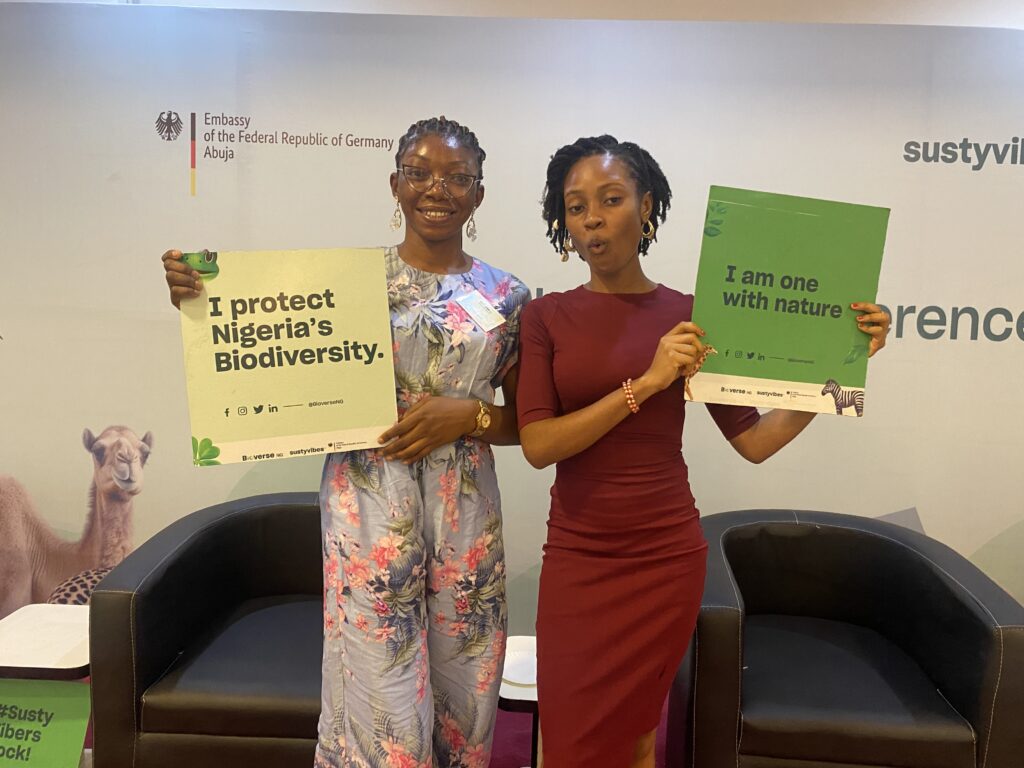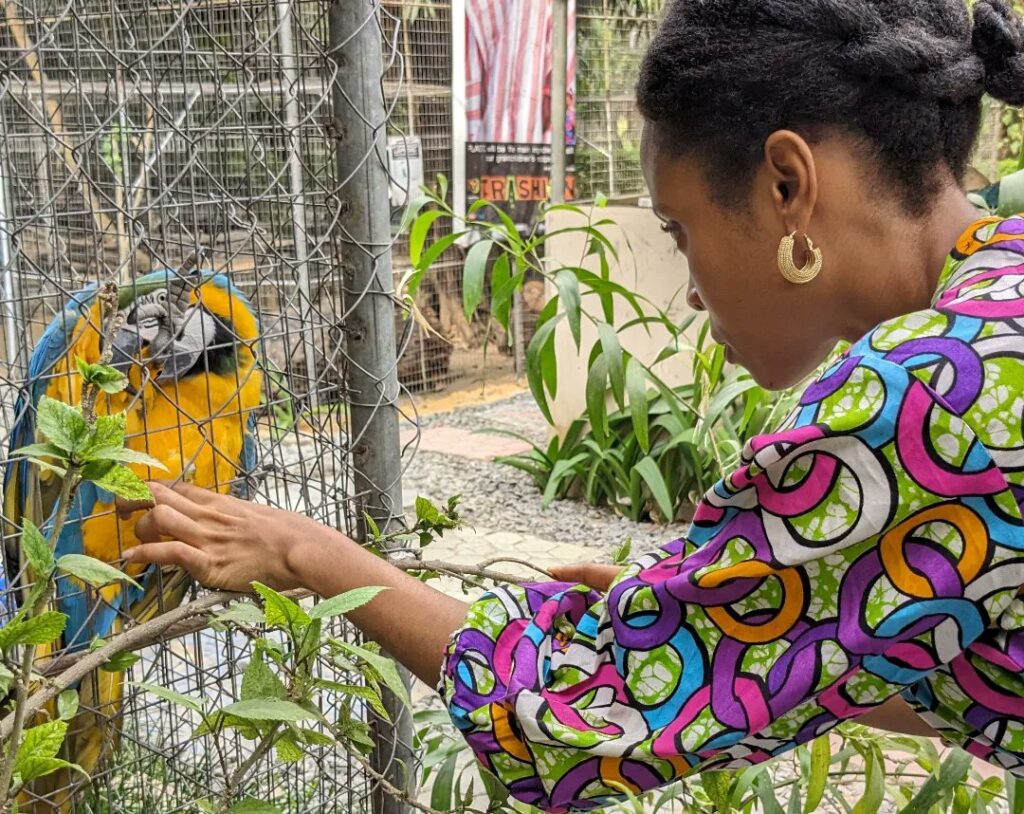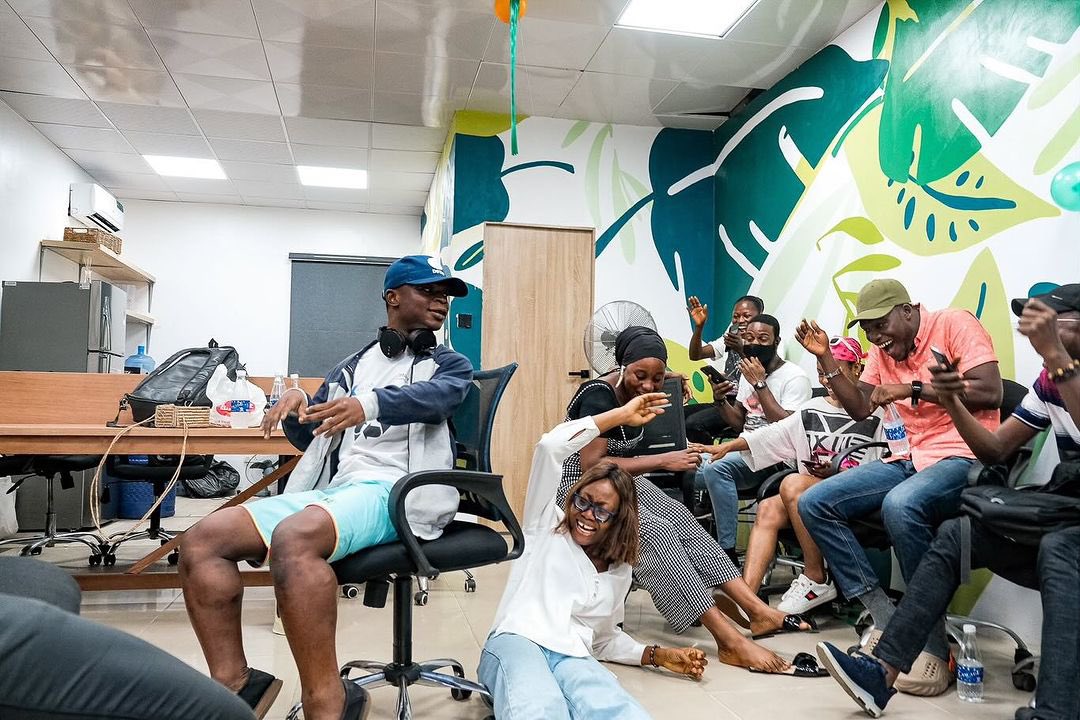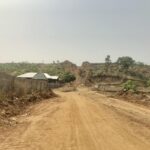Abuja, Nigeria: Umeokechukwu Precious’ frustration with environmental uncleanliness began as a student in Port Harcourt, Nigeria’s oil capital. There, she experienced the devastating effects of air pollution caused by soot, a growing threat to the health of the once-called “Garden City.” “Every morning, I woke up with severe migraines due to the polluted air,” she recounted. “It was thick with chemicals, and I felt like I was inhaling toxins.”
Leaving Rivers State for Lagos, Nigeria’s commercial capital, did little to alleviate her concerns. The city’s notorious flooding, exacerbated by improper waste disposal, particularly plastic, became a constant source of worry. Air quality in Lagos also remained a cause for concern.
Ms. Precious’ concerns are far from unfounded. Nigeria, Africa’s most populous democracy, grapples with a significant waste disposal problem. The country faces a deluge of plastic waste, with estimates suggesting over 60 million sachet water bags are used and discarded daily. Additionally, Nigeria generates a staggering 2.5 million tonnes of plastic waste annually. A large portion of this plastic ends up in landfills, clogging drainage systems and exacerbating flooding – a problem Precious herself has experienced. Compounding the issue is an astonishing climate and environmental illiteracy, leading to the daily environmental struggles faced by Nigerians.
Luckily, Ms. Precious wasn’t discouraged by what she saw, “these experiences fueled my frustration and curiosity about environmental issues, particularly climate change. I wanted to understand how factors like plastic pollution and carbon emissions contributed to climate change and what could be done about it.” So she started digging for answers.

Ms. Precious found an answer in SustyVibes, a non-profit organization. Through their BioverseNG project, SustyVibes educates young Nigerians about environmental conservation, climate change, and the importance of a healthy planet. The project also empowers some participants to become environmental activists, potentially inspiring a new generation of changemakers.
Practical environmental education, with a vibe
Ms. Constance Ekechi has always been curious about the environment. As a child, she remembers an uncle stopping her from killing a frog. “He explained that if I didn’t want the frog around, I could help it by gently guiding it into a bucket, then taking it to a farmland where it could live safely,” she said.
She grew up with that curiosity but didn’t know what to do or where to go find answers, until “I saw the BioverseNG call for application and just applied,” and like Ms.Precious, she was also selected for the BioverseNG training.
According to Ms. Hannah Omokhaye, project manager at SustyVibes, the BioverseNG project target young people, aiming to connect them to nature and biodiversity through education, inclusion, awareness, and experiential learning. “We’re passionate about creating space for young individuals in biodiversity,” she started, adding “Our project’s unique components include combining education, experience, community-building, and advocacy. We’re not just about learning; we’re about action and creating a shared identity in biodiversity.”
The BioverseNG project
The BioverseNG project kicked off with a call to action, inviting young Nigerians between 18 and 35 to apply. Through a competitive selection process, 958 participants, representing all six of Nigeria’s geo-political zones, were chosen. This diverse group underwent a rigorous six-week virtual training facilitated by 11 leading experts in biodiversity conservation and climate action. The curriculum focused on the interconnectedness of climate change and biodiversity in Nigeria. From policy to practical application, the workshops equipped Bioversers with the knowledge and skills necessary to promote sustainable practices and conserve the nation’s rich ecosystems.

After the training, Bioversers, as the trainees are called, put their newfound knowledge to work by developing Ecosystem-based Adaptation (EbA) proposals specifically tailored to biodiversity management in their local communities.
Following the training, three top performers secured three-month internships with organizations across the country. Ms. Ekechi, one of the chosen few, landed an internship with the Wildlife Conservation Society (WCS) in Calabar, Cross River State, and Ms. Precious, who was also selected joined the Green Fingers Wildlife Initiative, as an intern.
Ms. Ekechi’s internship began at the WCS’s Conservation Education Unit. This unit focuses on raising awareness and shifting public perception regarding forest preservation. “We organized field trips for local youth,” Ms. Ekechi recounted, “taking them to the Drill Ranch where they encountered different wild animals. We also held community meetings on wildfire management and visited schools to educate students on the importance of local environmental conservation.”
The internship proved to be a transformative experience for Ms. Ekechi. “Being immersed in nature’s beauty and interacting with dedicated conservation professionals inspired me to do more for environmental preservation,” she reflected. “Looking back, I recognize a significant shift in my mindset.”
SustyVibes encourages Bioversers to become active environmental educators themselves. Ms. Hannah emphasized that Bioversers are “encouraged to share and spread environmental and conservation education in cool ways,” particularly through social media and outreach to friends. The organization itself also plays a proactive role by engaging “in various activities, including social media challenges, career awareness campaigns, and street conferences, to raise awareness and involvement in biodiversity conservation.”
Despite its positive impact, SustyVibes still faces challenges. Funding constraints limit the number of trainees they can place in internship opportunities, which is crucial for gaining practical experience. Additionally, the organization lacks response from potential partners, hindering efforts to expand its reach. However, SustyVibes remains undeterred and actively seeks “increased collaboration and engagement” to overcome these obstacles, Ms Hannah states.
Young people like Ms. Ekechi, empowered by SustyVibes, express their deep gratitude for the opportunity. “Despite my background in food science and technology, I never considered a role in environmental conservation,” Ms. Ekechi states. “SustyVibes opened my eyes to the responsibility we all share. Now, I’m motivated to make my contribution.”
Abuja, Nigeria: Umeokechukwu Precious, moved by her experiences with pollution and waste mismanagement in Port Harcourt and Lagos, Nigeria, sought to address environmental issues. She discovered SustyVibes, a non-profit dedicated to educating young Nigerians on environmental conservation and climate change through its BioverseNG project.
The BioverseNG project targets young people aged 18 to 35, offering a competitive selection and training program to raise awareness about biodiversity and climate change. The project combines education with experiential learning and community-building, aiming to foster environmental advocacy.
Ms. Precious and Ms. Constance Ekechi, another trainee, benefited from the training and secured internships that allowed them to apply their knowledge in real-world conservation efforts. Ms. Ekechi worked with the Wildlife Conservation Society, organizing educational trips and community meetings, while Ms. Precious joined the Green Fingers Wildlife Initiative.
Despite its successes, SustyVibes faces challenges such as limited funding and the need for more partners. However, it remains committed to expanding its impact by increasing collaborations and actively engaging young people in environmental issues.






